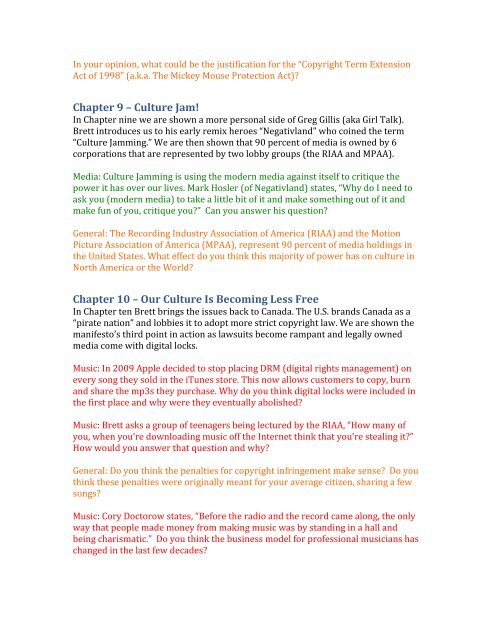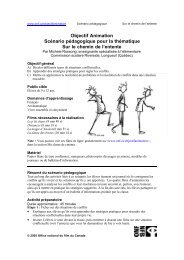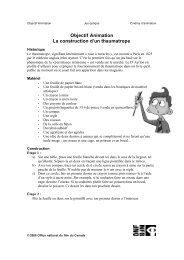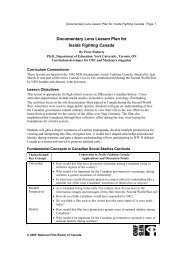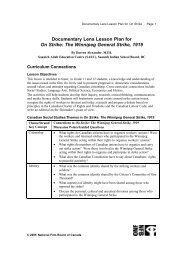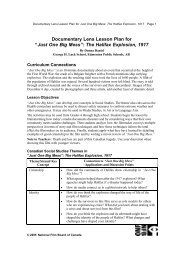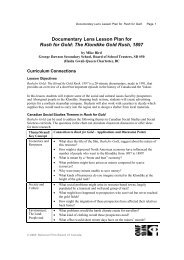A remix manifesto - Office national du film du Canada
A remix manifesto - Office national du film du Canada
A remix manifesto - Office national du film du Canada
You also want an ePaper? Increase the reach of your titles
YUMPU automatically turns print PDFs into web optimized ePapers that Google loves.
In your opinion, what could be the justification for the “Copyright Term ExtensionAct of 1998” (a.k.a. The Mickey Mouse Protection Act)?Chapter 9 – Culture Jam!In Chapter nine we are shown a more personal side of Greg Gillis (aka Girl Talk).Brett intro<strong>du</strong>ces us to his early <strong>remix</strong> heroes “Negativland” who coined the term“Culture Jamming.” We are then shown that 90 percent of media is owned by 6corporations that are represented by two lobby groups (the RIAA and MPAA).Media: Culture Jamming is using the modern media against itself to critique thepower it has over our lives. Mark Hosler (of Negativland) states, “Why do I need toask you (modern media) to take a little bit of it and make something out of it andmake fun of you, critique you?” Can you answer his question?General: The Recording In<strong>du</strong>stry Association of America (RIAA) and the MotionPicture Association of America (MPAA), represent 90 percent of media holdings inthe United States. What effect do you think this majority of power has on culture inNorth America or the World?Chapter 10 – Our Culture Is Becoming Less FreeIn Chapter ten Brett brings the issues back to <strong>Canada</strong>. The U.S. brands <strong>Canada</strong> as a“pirate nation” and lobbies it to adopt more strict copyright law. We are shown the<strong>manifesto</strong>’s third point in action as lawsuits become rampant and legally ownedmedia come with digital locks.Music: In 2009 Apple decided to stop placing DRM (digital rights management) onevery song they sold in the iTunes store. This now allows customers to copy, burnand share the mp3s they purchase. Why do you think digital locks were included inthe first place and why were they eventually abolished?Music: Brett asks a group of teenagers being lectured by the RIAA, “How many ofyou, when you’re downloading music off the Internet think that you’re stealing it?”How would you answer that question and why?General: Do you think the penalties for copyright infringement make sense? Do youthink these penalties were originally meant for your average citizen, sharing a fewsongs?Music: Cory Doctorow states, “Before the radio and the record came along, the onlyway that people made money from making music was by standing in a hall andbeing charismatic.” Do you think the business model for professional musicians haschanged in the last few decades?


